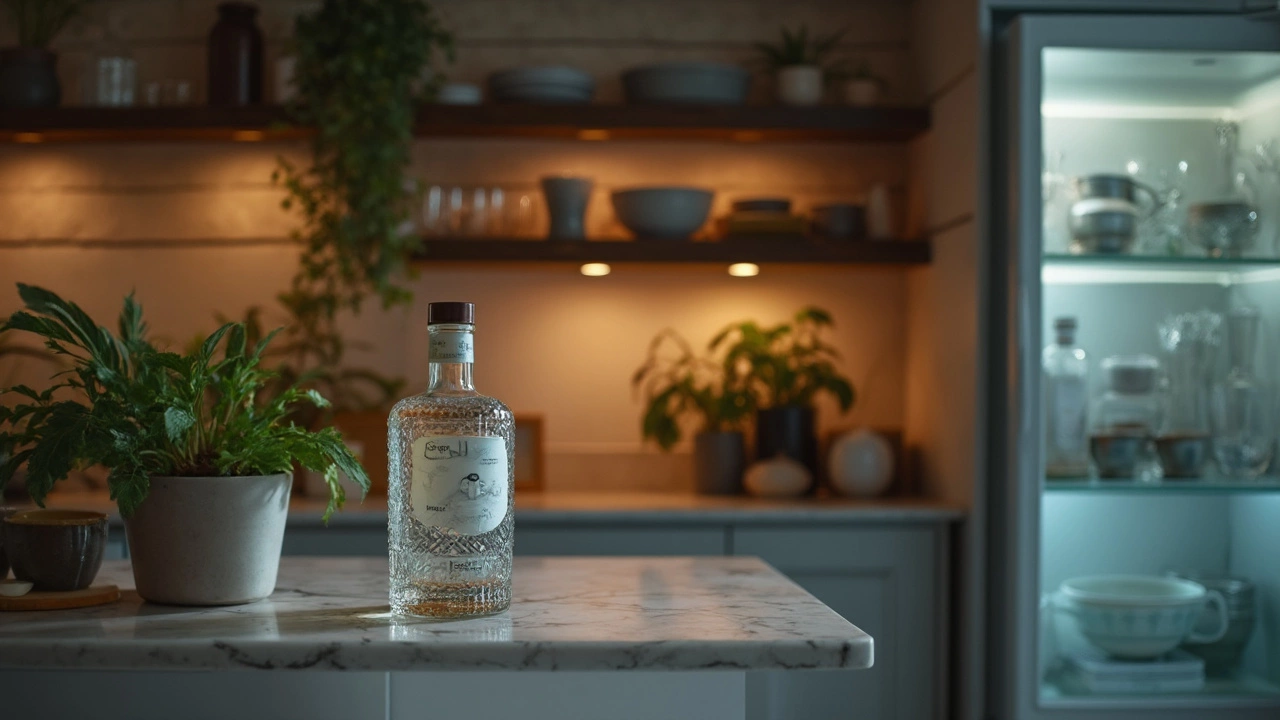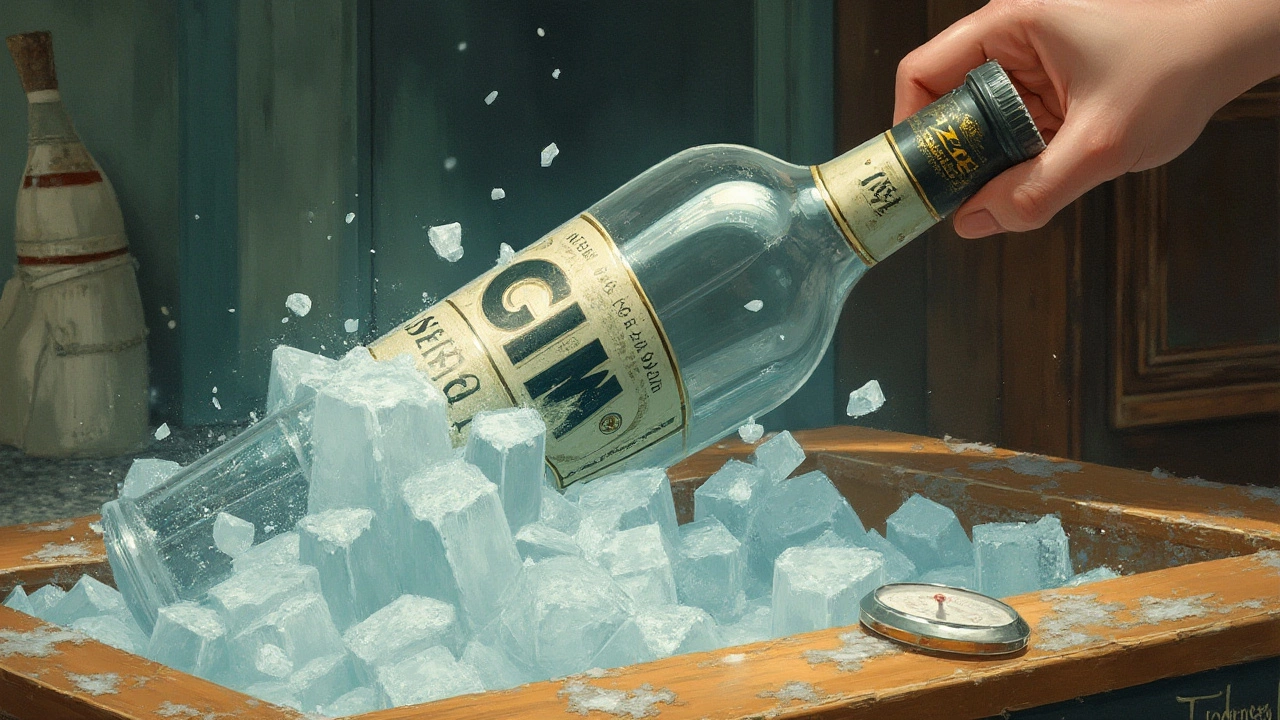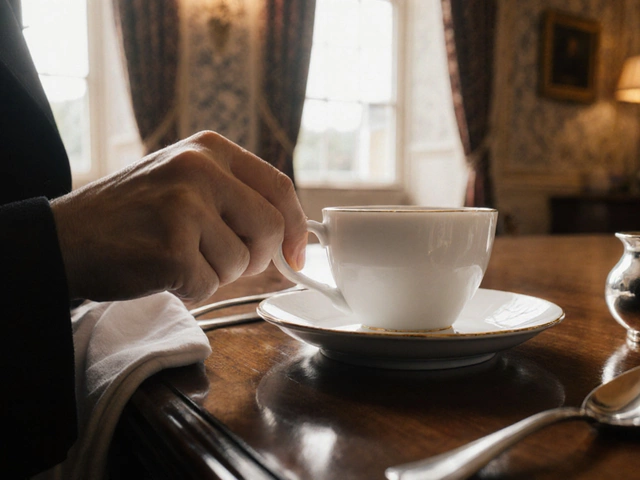Gin Storage Tips: Keep Your Gin Fresh and Tasty
Got a bottle of gin you love? You’ll want it to taste just as good tomorrow as it does today. The trick isn’t magic, it’s simple storage habits. Below are the down‑to‑earth steps that keep your gin lively, aromatic, and ready for the next cocktail.
Pick the Right Spot
First, find a cool, dark place. Light and heat break down the botanical notes that make gin special. A pantry shelf, a kitchen cabinet, or a wine fridge set between 12‑18 °C (55‑65 °F) does the job. Avoid the stove, the dishwasher, or a sunny windowsill – those spots raise the temperature and fade the flavor.
If you have a dedicated wine fridge, great. If not, a regular fridge works too, as long as you don’t store gin next to strong‑smelling foods. Gin doesn’t need a freezer unless you’re making those ice‑cold “gin and tonic on the rocks” drinks. Even then, the freezer can make the bottle expand and the seal leak.
Seal It Tight and Store Upright
Once you’ve opened a bottle, the biggest enemy is air. Every time you pour, you let oxygen in, which can dull the botanicals. Keep the cap or cork screwed on tightly. If you have a swing‑top bottle, make sure the gasket is clean and presses firmly.
Store bottles upright. When a bottle lies on its side, the spirit touches the cork, and the cork can soak up some of the gin, letting air in faster. An upright position also helps you see the liquid level at a glance, so you know when it’s time for a refill.
For heavy users, consider moving the gin to a smaller bottle after the first few pours. Less air space means slower oxidation. A 250 ml or 500 ml swing‑top bottle does the trick and fits nicely in a bar cart.
Another cheap hack: add a drop of neutral spirit (like vodka) to the bottle after a big pour. The extra alcohol creates a barrier that slows oxidation. Just a few drops – you won’t taste it, but your gin will thank you.
Watch the Humidity and Avoid Strong Odors
Gin isn’t as sensitive to humidity as wine, but a very damp cellar can make the cork swell. Keep the storage area moderately dry; a simple dehumidifier in a basement works.
Strong kitchen smells (onions, garlic, spices) can seep into the bottle over time. If your pantry doubles as a spice cupboard, give the gin its own shelf.
Finally, if you’re into homemade or barrel‑aged gin, treat it like a fine spirit. Oak chips, vanilla beans, or a small piece of chestnut can be added to a sealed container for a few weeks. Just remember to keep the container in the same cool, dark conditions and check the flavor daily – you don’t want it to become overly woody.
That’s it. Store your gin in a cool, dark spot, keep the cap tight, stand the bottle up, and limit exposure to air and strong smells. Follow these basics and your gin will stay bright and botanically punchy for months, ready for any cocktail you crave.
Wondering if you should refrigerate gin? Learn the science behind gin storage, storage mistakes to avoid, and pro tips for keeping your gin fresh and flavorful.
View DetailsEver wondered why your gin bottle turned into slush in the freezer? Dive into the fascinating science behind gin's freezing point and discover tips on how to properly store your gin to avoid this frosty mishap. Learn how alcohol content and storage temperatures play a crucial role in keeping your gin liquid gold, and explore the exciting world of gin distillery tours to experience the artistry behind this beloved spirit.
View DetailsDiscover whether you can drink 100-year-old gin, as we delve into the fascinating journey of this timeless spirit. Explore the history, preservation methods, and unique attributes of vintage gin that has stood the test of time. We'll unravel what makes it safe or risky to taste this century-old treasure. Learn insights and tips from gin distillery experts to better understand the enigmatic world of aged spirits.
View Details



